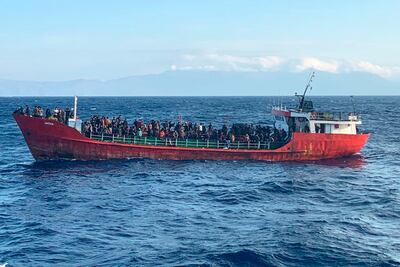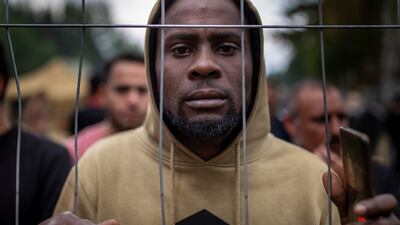On the border between Poland and Belarus, a refugee crisis is worsening. Thousands of migrants from the Middle East are trapped in a freezing forest with no supplies, with Polish authorities saying they are defending the EU’s borders by keeping them out and accusing Belarus of facilitating their passage in retaliation for European sanctions against the government in Minsk.
“People are being treated like weapons,” Crystal van Leeuwen of Medecins Sans Frontieres told The Guardian. The migrants needed shelter, food, water and medical assistance, she said. “Their lives need protecting. They are not weapons, they are human beings.”
Some have already died, but apart from the help they are given by local and international NGOs, one has to ask: where is the international empathy for irregular migrants, whether they are enduring sub-zero temperatures in Eastern Europe, risking their lives on unseaworthy vessels in the Mediterranean or Andaman Seas or making perilous treks across Central America? Many are financially desperate and just want a chance for a better life for them and their families. Others are often fleeing war and persecution.
Surely, recognising that migrants are people like "us", wherever we are or are from, should be at the heart of any policies dealing with irregular movements of people, or indeed regular, legal migration.
Such fellow feeling appears to be in short supply, however, and especially in Europe. In France the TV personality and author Eric Zemmour has shot up the opinion polls as a possible candidate for the presidential elections. It would be tempting to say this was despite his two convictions for racial and religious hate speech, but clearly Zemmour’s ideas – like calling for 2 million foreigners to be expelled from France, and insisting children have traditional French names, because “calling your child Mohamed amounts to colonising France” – strike a chord with a significant part of the French population.

Last year’s Migrant Acceptance Index by the polling firm Gallup asked people in 140 countries whether they thought migrants living in their country, becoming their neighbours and marrying into their families were “good things or bad things”. Over a three-year period Gallup found that attitudes had become more negative, with eight of the 10 least-accepting countries being in Europe. Given the entry of far-right, anti-immigrant parties into the political mainstream, and sometimes even into government, across the continent in recent years, that is hardly a surprise.
It is depressing, though. It may be true, perhaps, that charity begins at home and the primary concern for any nation must be its own citizens. There may also be legitimate issues about newcomers respecting the cultures of their host nations. It should also be noted that it is often in areas of relative deprivation that anxiety about immigration is highest. It is over-simplistic to condemn those who fear losing what little they have to outsiders as racists.
But whenever I used to hear scare-mongering about foreigners swamping Britain’s shores when I lived in London, it felt personal. Which of my immigrant ancestors would you rather had not come to the UK, I would think. Should my friends’ parents who made the journey from Pakistan and India have stayed at home? The distinction between legal and illegal immigration is important, of course; but the underlying hostility to “the other” is the same.
This is not just shameful in a globalised world in which vastly increased knowledge of and exposure to one another’s cultures was supposed to break down barriers, not cause some to strengthen them. There are other important points to consider, too. Much of the irregular migration from the Middle East is as a result of the disastrous wars that western countries waged, so there is a clear responsibility to the peoples who suffered these catastrophes that morally cannot be evaded. The long-term legacies of colonial rule also mean that Europe continues to have special obligations to Africa.
Second, much of the developed world – and that includes East Asian countries too – have such low birth rates that they will be reliant on migration to sustain their societies in the future. They will need medics to keep their elderly in comfort, and a workforce to provide a sufficient tax base since the dwindling number of younger locals will not be able to fill the exchequer’s coffers. These countries will have to present a more welcoming face to the foreigners they presently disdain.
But overall, if notions of the brotherhood of man, or that “nation shall speak peace unto nation”, as the BBC motto has it, are to mean anything, it should be impossible for anyone to see refugees from Syria, Myanmar, Sudan or wherever as being so different to themselves that they could harden their hearts and say: no, we're not having you, and we are functionally indifferent to your plight. That is not to deny the primacy of the nation state, and its importance as the first allegiance for most people.
Still more important, however, is the inspiration contained in the Quranic words “O mankind! Lo! We have created you male and female, and have made you nations and tribes that ye may know one another”. The former British prime minister Theresa May once argued that “if you believe you are a citizen of the world, you are a citizen of nowhere”. I believe, on the other hand, that if we are not all citizens of the world, with consequent duties and obligations to one another regardless of nation, colour and creed, we have no common humanity at all. The actions global leaders are currently taking on climate change gives the lie to that. That solidarity must be extended to migrants, both legal and illegal, as well.


